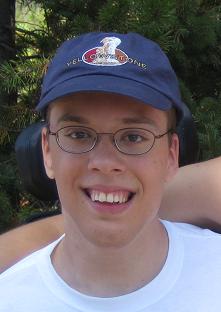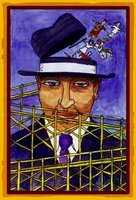Today I received links to two stories from FRIDA (Feminist Response in Disability Action). Since the American Medical Association's refusal to speak against the Ashley Treatment, FRIDA has been attempting to work with the AMA on the issue of human rights for people with disabilities. This coming weekend the AMA holds its annual meeting, and FRIDA will be there.
In "Doctors: Whose Side Are They On?" former Jerry Lewis poster child Mike Ervin explores why the medical community seems to have such a hard time seeing people with disabilities as people. He asks,
"How can so many of them attain so much education and remain so oblivious to the basic humanity of people with disabilities? Might there even be something about the detached manner in which they are educated that makes them more susceptible than most to disability bigotry?"
Mike asked Lisa Blumberg, a disability rights activist, her opinion and she said,
"I don't think doctors are instinctively more prejudiced than others about disability, but they are in a position to act on those prejudices since they have power over people's bodies. In addition, their view about life with a disability may be distorted because they see disabled people in settings where the focus is on what is 'wrong' with them and whether they can be 'cured.' It's a vicious cycle - doctors are infected by the prejudices of society, then doctors' prejudices become prejudicial practices which fuel the prejudices of society."
It's a must read. Very thought provoking.
FRIDA also sent the story,
"The Other Story from a 'Pillow Angel': Been there. Done that. Preferred to grow." from
Anne McDonald, a guest columnist for the Seattle Post Intelligencer. This is the story of a woman who has a story quite similar to that of Ashley X. She was abandoned and starved as a young child because of motor skills at the level of a 3 month old and a diagnosis of severe retardation. At age 18, she weighted 35 pounds and was 42 inches tall. She says, "
My life changed when I was offered a means of communication. At the age of 16, I was taught to spell by pointing to letters on an alphabet board. Two years later, I used spelling to instruct the lawyers who fought the habeas corpus action that enabled me to leave the institution in which I'd lived for 14 years."
Another must read. Check it out.
I wonder - how many people are there that are deemed worthless, but simply don't have a means to communicate? Of course, ability to communicate, level of cognitive ability don't matter on the issue of worth, because a person is a person. It's as simple as that - human rights are for all people.














